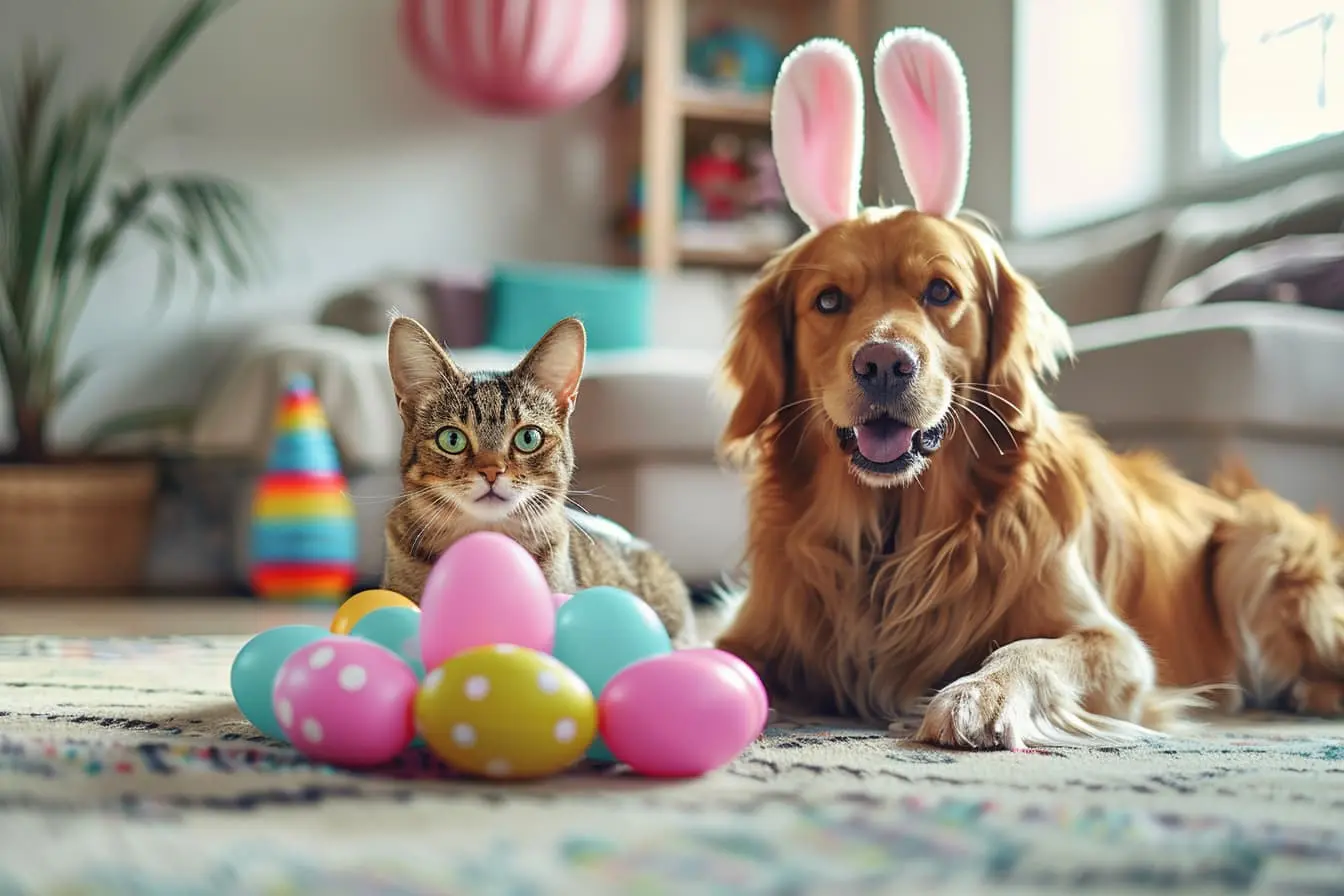
Easter Hazards in the Home for Pets
As the Easter holiday approaches, it's a joyous time filled with family gatherings, Easter egg hunts, and the arrival of spring. However, for pet owners, it's also a time to be vigilant about the potential hazards that Easter celebrations can bring into our homes. Pets, with their curious natures, can easily get into things that aren't good for them. Here are some key hazards to watch out for to ensure your pets stay safe and healthy during the Easter festivities.
Chocolate and Sweets
Chocolate is a well-known hazard to pets, particularly dogs, due to its theobromine content, which is toxic to them. During Easter, chocolate eggs, bunnies, and other treats are more prevalent in homes, making it easier for pets to find and ingest them. Even small amounts of chocolate can cause vomiting, diarrhoea, rapid breathing, increased heart rate, and seizures in pets.
Xylitol, a sweetener found in many sugar-free sweets and gum, is another dangerous substance for pets, especially dogs. Ingestion can lead to a rapid release of insulin, causing hypoglycemia (low blood sugar), seizures, liver failure, or even death.
Easter Plants
Many traditional Easter plants, such as lilies, are highly toxic to cats and can cause kidney failure even in small amounts. Other Easter plants like tulips and daffodils are also hazardous when ingested, leading to gastrointestinal upset, convulsions, or cardiac abnormalities.
Decorations
Easter decorations pose several risks to pets. Plastic Easter grass, used in baskets, can be particularly enticing to pets. If ingested, it can lead to intestinal blockages, requiring emergency surgery. Similarly, small decorations and toys can be choking hazards or cause internal blockages if swallowed.
Easter eggs made of plastic or real eggs that are hard-boiled and then hidden can also become a problem if not found and eaten by pets. These can cause gastrointestinal upset or become a choking hazard.
Safety Tips
Here are some tips to keep your pets safe during Easter:
-
Store chocolate and sweets out of reach of pets. Ensure that children understand the importance of not sharing these treats with furry family members.
-
Choose pet-safe decorations. Opt for decorations that are too large to be swallowed and avoid using plastic Easter grass.
-
Keep an eye on Easter plants and flowers. Make sure they are out of reach of pets or opt for pet-friendly plants.
-
Supervise your pets during Easter egg hunts. Ensure all hidden treats are found and accounted for, and keep your pets away from areas where treats are hidden until they are collected.
-
Create a pet-safe zone. If your home is particularly busy during Easter, consider creating a safe space for your pet away from the festivities where they won't be tempted by hazards.
By being aware of these potential hazards and taking proactive steps to mitigate them, you can ensure that Easter is a safe and happy time for all members of your family, including your four-legged ones. Remember, if you suspect your pet has ingested something toxic, contact your veterinarian or an emergency pet poison hotline immediately. Let's keep our furry friends safe this Easter!
Vets near you
Speciality vets
- Aquatics vet specialists
- Birds vet specialists
- Camelids vet specialists
- Cats vet specialists
- Cattle vet specialists
- Deer vet specialists
- Dogs vet specialists
- Equines vet specialists
- Exotic vet specialists
- Goats vet specialists
- Pigs vet specialists
- Poultry vet specialists
- Sheep vet specialists
- Small Mammals vet specialists
- Wild vet specialists
Vet facilities
- Accessible by public transport
- Blood testing
- Car park nearby
- Client car park
- Dentistry
- Diagnostic imaging
- Disabled public access
- Flea and worm treatments
- Microchipping
- Mobile services
- Neutering
- Open at weekends
- Out-of-hours service
- Referral interests
- Referrals only
- Street parking outside
- Toilets available
- Vaccinations